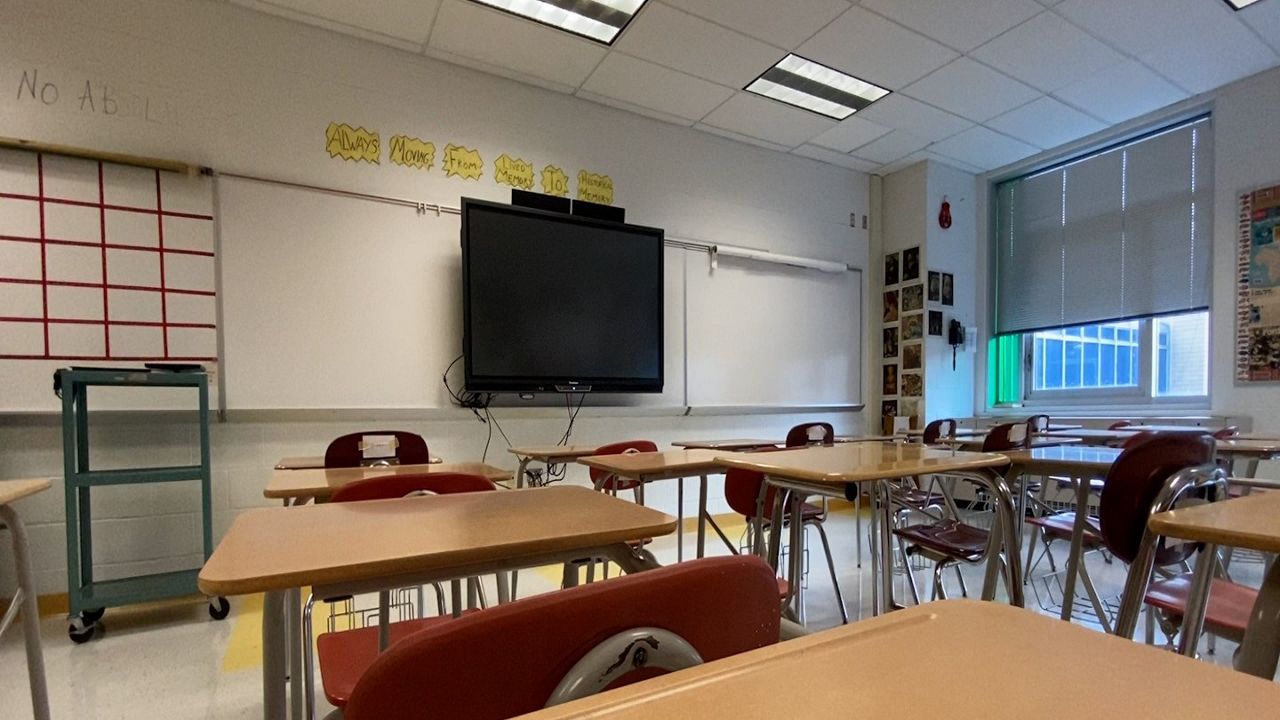RALEIGH, N.C. (AP) — A legal challenge filed nearly three years ago to North Carolina’s taxpayer-funded scholarship program for K-12 children to attend private schools was dismissed Wednesday by the lawsuit's plaintiffs.
What You Need To Know
- A legal challenge to North Carolina’s taxpayer-funded scholarship program for K-12 children to attend private schools is no more
- The plaintiffs in the 2020 lawsuit filed a legal notice dismissing the case on Wednesday
- The dismissal came six months after the state Court of Appeals ruled that the case had to be heard by three trial court judges, rather than just a single judge
- The state’s “Opportunity Scholarship Program” was created by the General Assembly in 2013
The three-sentence notice of a voluntary dismissal did not give a reason why the plaintiffs — several parents led by the president of the North Carolina Association of Educators — chose to end the challenge. The attorney who signed the notice referred questions to the NCAE, and a spokesperson for the association did not immediately respond to an email seeking comment late Wednesday.
The dismissal came six months after the state Court of Appeals ruled that the case had to be heard by a panel of three trial court judges, rather than just a single judge.
The state's "Opportunity Scholarship Program” was created by the General Assembly in 2013. Two years later, the state Supreme Court ruled in a separate lawsuit that challenged the very idea of the program, declaring that the plaintiffs there failed to prove the program violated the state constitution.
Related podcast — Opportunity Scholarships: Expanding school choice
The plaintiffs in the latest lawsuit, which was filed in summer 2020, didn't attempt to overturn the entire program. Rather, their accusations focused on individual circumstances in which they claimed the scholarships would be unconstitutional.
Some of the plaintiffs argued, for example, that the program gives money to schools that refuse admission to students who don't comply with a school's religious doctrine or to schools that bar students from publicly supporting LGBTQ+ rights.
But the author of the October majority opinion in the Court of Appeals said it was clear the purpose of the lawsuit was to strike down the program as unconstitutional in every situation.
That required a three-judge panel to hear the case, Court of Appeals Judge April Wood wrote.
Over 25,500 students in low- and middle-income families have received Opportunity Scholarship awards during this school year, totaling $133 million, according to program data.
The state House budget approved earlier this month would dramatically increase the annual appropriation for the scholarships over the next decade, from $94.8 million during the current fiscal year to $367.5 million during the 2032-33 fiscal year.
House and Senate Republicans filed bills this month that would allow all K-12 students to receive a scholarship, and not just families whose incomes are below certain amounts.





